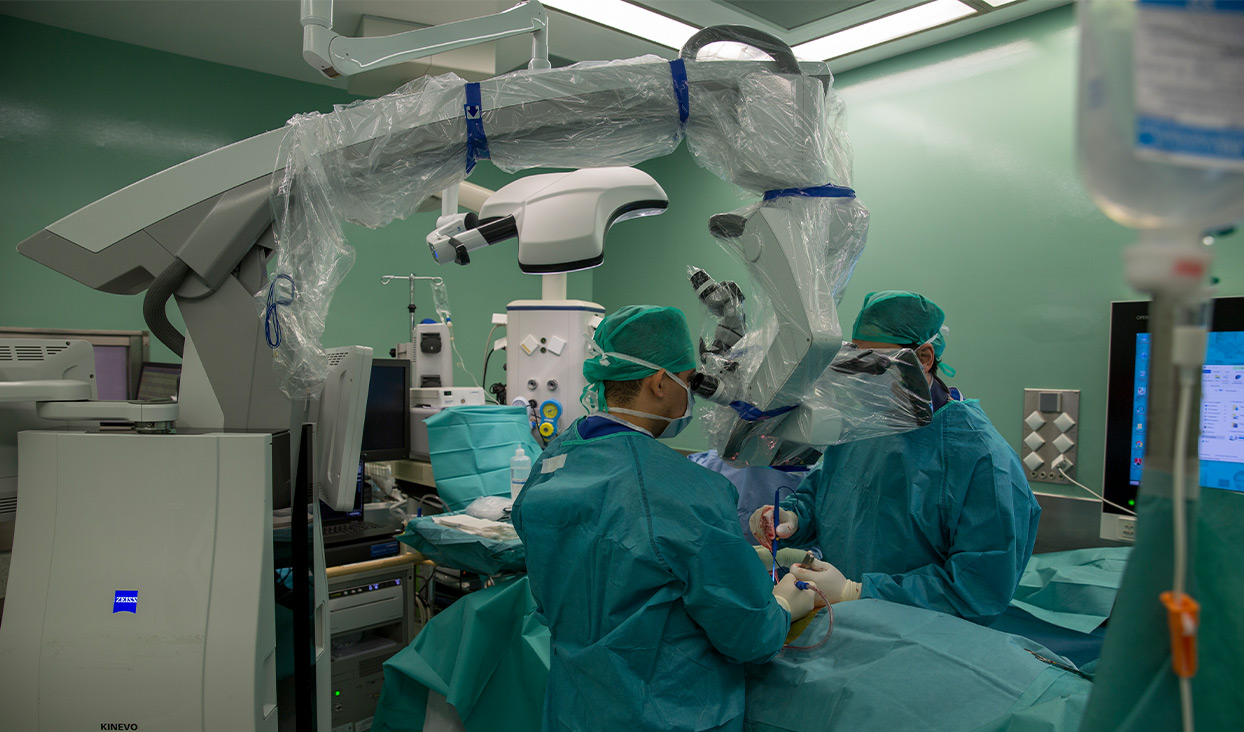Minimally invasive spine surgery is an advanced surgical technique that we use to treat various spinal problems with minimal invasion of surrounding tissues.
This innovative technique can be used to treat a wide variety of spinal conditions, including herniated discs, spinal stenosis, vertebral fractures, tumors, and deformities such as scoliosis, among others.

Minimally invasive surgery generally causes less postoperative pain, patients experience a faster recovery and can return to normal activities more quickly.
Minimally invasive spine surgery is well suited for treating a herniated disc because it allows us to address the herniation and relieve pressure on the nerves with less trauma to the surrounding tissues. This results get a faster recovery and a lower risk of complications.
The spine can be stabilized with minimally invasive surgery, correcting abnormal spinal alignment and reducing pressure on affected nerves. In addition, minimally invasive surgery leads to faster recovery and less postoperative pain.
Minimally invasive spinal surgery offers an effective and less invasive option to treat spinal stenosis, providing pain relief and improving the quality of life of patients with this condition, with less tissue damage, effective pressure relief and improved nerve function.
Vertebral fractures result from traumatic injuries, such as car accidents or falls, or from medical conditions such as osteoporosis, which weaken bones and increase the risk of compression fractures. These fractures can cause severe pain, spinal deformity and limited mobility. Minimally invasive surgery may be the best treatment option, especially those affecting the thoracic (middle spine) or lumbar (lower spine) vertebrae.

© NEUROCLÍNICA QUIRÚRGICA BARCELONA 2026 | ALL RIGHTS RESERVED | DESIGNED BY VILAX